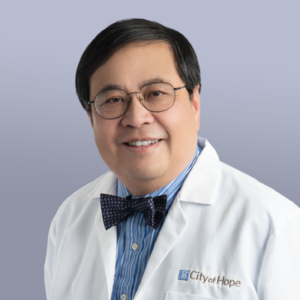The field of surgical oncology has undergone transformative advancements over the last decade. From refining minimally invasive techniques to leveraging immunotherapy and viral oncolytics, our collective goal remains the same: improving patient outcomes while reducing treatment burden. At City of Hope, we have prioritized accelerating the translation of laboratory discoveries into clinical applications, and nowhere is this more evident than in our work with oncolytic viruses, remote surgery, and the integration of AI in surgical decision-making.
At City of Hope, our approach to oncolytic virotherapy has been to let nature guide us. By recombining vaccine strains of viruses and subjecting them to high-throughput screening across diverse cancer cell lines, we have identified highly selective viral candidates that exhibit strong tumor-killing properties with minimal toxicity. One such candidate, currently in clinical trials, was engineered through this evolutionary process. The aim is not only direct oncolysis but also engagement of the immune system to mount a sustained anti-tumor response. If successful, this approach could be a paradigm shift in solid tumor management.
The future of remote surgery
Robotics has already transformed complex surgical procedures, allowing for enhanced precision and faster recovery times. The next frontier is remote surgery, where surgeons may operate across great distances using robotic interfaces.
While regulatory and technical barriers remain in the U.S., other countries, such as China, have already implemented remote urologic surgery over 5G networks. The implications for global health care are profound. A specialist in a major medical center could perform intricate procedures in a remote hospital, reducing the need for patient travel and optimizing expertise distribution. At City of Hope, we are working to establish the technological and regulatory frameworks to allow this innovation to be safely implemented in the future.
AI in surgery: Enhancing decision-making and patient monitoring
AI-assisted surgical tools have long provided real-time feedback on tissue properties, ensuring optimal sealing and resection without excessive thermal damage. Recently, AI vision-enhanced overlays of diagnostic scans have increased safety by allowing surgeons to see vital structures and tumors in planes immediately deep to the plane of dissection.
AI-powered post-surgical monitoring is also revolutionizing recovery management. By integrating wearable devices and symptom-tracking applications, we can analyze physiologic data in real time to identify patients at risk for complications. AI models trained on this data are helping predict which patients require early intervention, reducing hospital readmissions and personalizing post-operative care.
The next decade holds immense promise. With continued investment in research and collaboration across disciplines, we are poised to redefine what is possible in cancer surgery: more cures, less invasive interventions, and a better quality of life for our patients.
Listen to Dr. Fong on City of Hope’s new podcast episode releasing on March 11, “On the Edge of Breakthrough: Voices of Cancer Research.” Available on Spotify, Apple Podcasts and at cityofhope.org/edge-of-breakthrough.
City of Hope®, one of the largest and most advanced cancer research and treatment organizations in the U.S. with its National Medical Center named top 5 in the nation for cancer by U.S. News & World Report. To learn more about City of Hope, visit: www.cityofhope.org.








